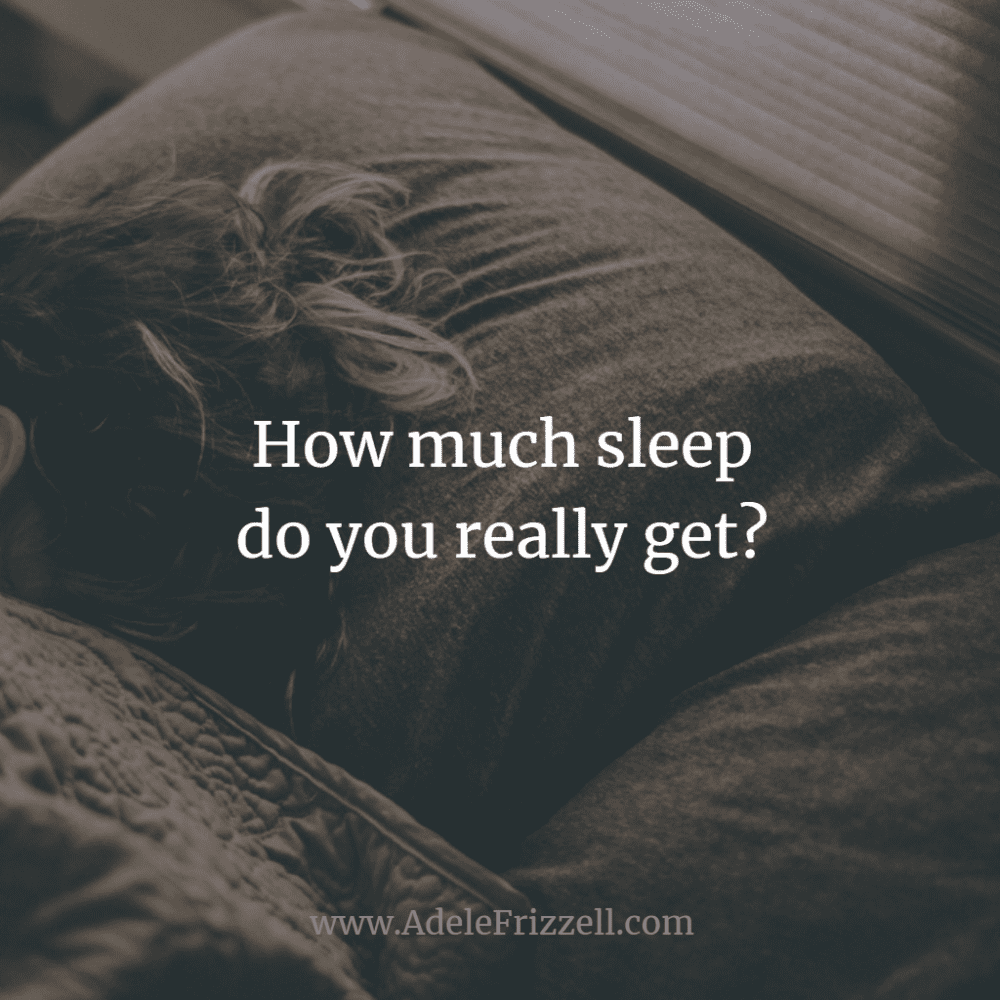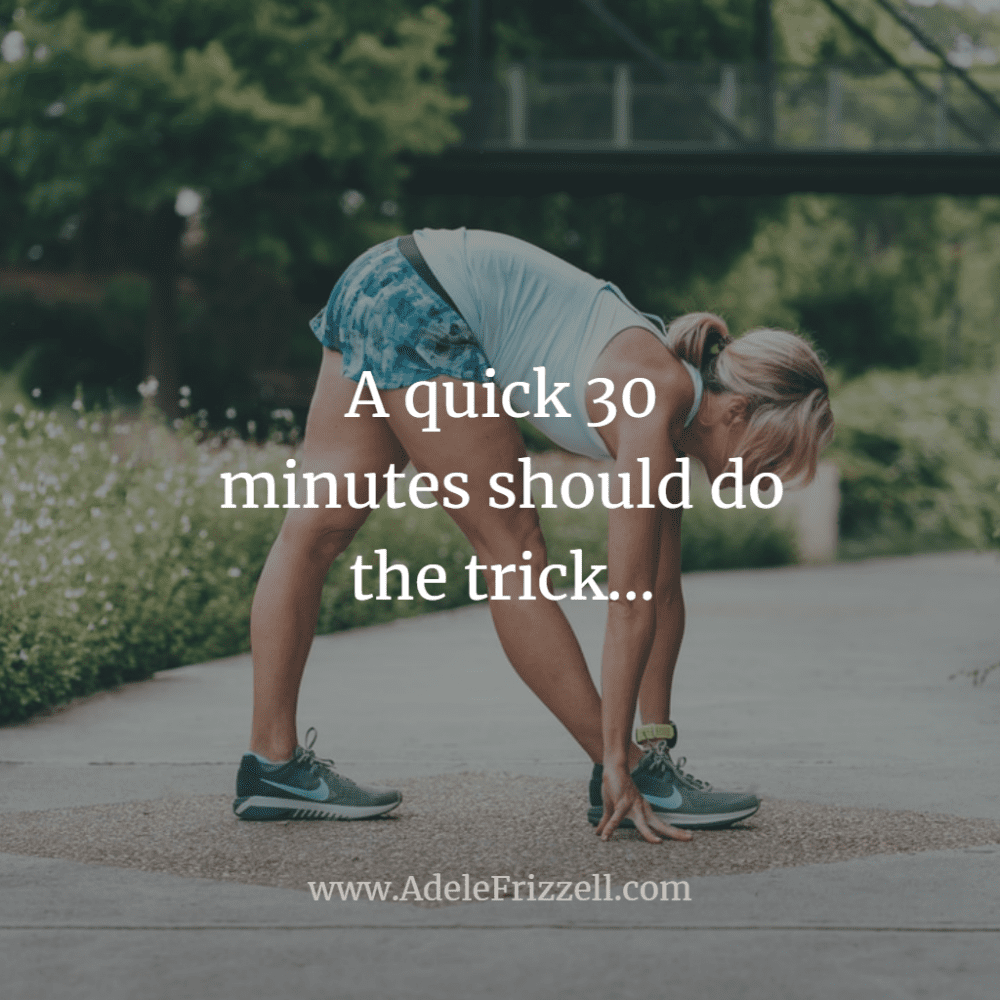Do you have trouble sleeping through the night?
Do you feel exhausted or like you’re running on fumes all day?
Are you using caffeine to make it through the afternoon?
If so, I have some great tips for you!
The science of sleep is fascinating, complicated, and growing
We spend approximately a third of our lives at it, and yet we’re just beginning to understand how essential it is to our health and well-being.
Lack of sleep impacts just about everything in your body and mind. People who get less sleep tend to be at higher risk for health issues including diabetes, heart disease, and certain types of cancer. A chronic lack of sleep (either quality or quantity) can also slow our metabolism and lead to weight gain and hormone imbalances. It can also affect our mood, memory and decision-making skills.
Do you know that lack of sleep may even negate the health benefits of your exercise program? That’s right. A lack of sleep can actually make you more catabolic, which means you lose muscle. (Gah!)
What aspect of health does sleep not affect?
Almost nothing, which is why SLEEP is one of the first things I focus on with my clients.
Becoming healthy, fit, and unstoppable means getting disciplined about your sleep.
What sleep does to our bodies
Sleep has three main purposes:
- To restore our body and mind. Our bodies repair, grow and our brains “reset” while we sleep.
- To improve our brain’s ability to learn and remember things, technically known as “synaptic plasticity”.
- To conserve some energy so we’re not just actively “out and about” 24-hours a day, every day.
Do you know how much sleep adults need? It’s less than kids but it’s recommended that adults get 7 – 9 hours a night. There are a few lucky ones out there who are high-functioning on only a few hours of sleep a night, but this appears to be both genetic and rare. Many people say they “get by” on 5 or 6 hours of sleep and that they’re “used to it” but really have no idea how much their world would change if they got in a good night of rest.
Good news! There’s a simple magic fix to help you lose weight, recover better from exercise, improve your mood, increase your sex drive, motivation and self-discipline, reduce sugar cravings and stress, and help you think more clearly. It’s called SLEEP!
If you’re just getting by on less than 8 hours of sleep and using coffee to make it through the day, then consider the following tips.
14 Tips For A Better Sleep
1. Try to sleep a minimum of seven to a maximum of nine hours of sleep per night. While not as detrimental as sleep deprivation, oversleeping also has some negative health consequences.
2. Establish regular sleep hours. Try to go to bed and wake up in the morning around the same time every day, even on the weekends.
3. Go to bed before 11:00 pm, preferably by 10:00 pm. Our stress glands, the adrenals, recharge between the hours of 11:00 pm – 1:00 am.
4. Avoid using a loud alarm clock. Waking up suddenly can be a shock to your body. If you are regularly getting enough sleep, an alarm clock should be unnecessary. Sleeping through an alarm or requiring an alarm daily indicates you may be sleep deprived.
5. Replace your loud alarm clock with a Wake-Up Light Alarm Clock with Sunrise Simulation. These light-emitting alarm clocks are about $50-$200, and a gentle and refreshing way to wake up. The human body is conditioned to wake up when it senses sunlight and many people feel much better waking up to one of these. A full-spectrum light is recommended for those who struggle with SAD (Seasonal Affective Disorder) in the winter months.
6. Sleep in complete darkness. Your room should be as dark as possible to maintain melatonin balance.
7. Do not turn on the light if you go to the bathroom during the night. Turning on the light shuts down melatonin production and can contribute to sleep deprivation or insomnia. Instead, keep a very soft nightlight plugged into an outlet if you need to see.
8. Turn on the lights or open the blinds as soon as you wake. Allow the daylight and the sounds of the morning to stimulate and wake the brain. This helps to reset your body clock and ensures that your melatonin levels remain on ‘awake’ until the evening.
9. Ensure adequate exposure to daylight by spending time outside during the day. This also helps to regulate the day and night’s natural cycle on the brain. Ideally, go for a short walk during your lunch break. This will invigorate you and help your circadian rhythms. The main cue influencing circadian rhythms is daylight.
10. Try not to nap during the day or early evening. If you must nap, sleep for no longer than 30 minutes, maximum.
11. At night, do not work past the point of feeling drowsy. If you’re feeling sleepy while watching television, using the computer, or reading, go to bed!
12. Have a pre-bedtime ritual where you turn off all electronic devices and screens 30 minutes before bed. Read a paperback book, have a hot bath, or do some light yoga stretches. Relax, and avoid stimulation.
13. Most people should avoid caffeine (especially coffee or energy drinks) 8 hours before bed. In addition to coffee, tea, soft drinks, and chocolate also contain caffeine. A dose of caffeine usually takes 15 to 30 minutes to take effect and lasts for four to five hours. In some, caffeine metabolism may last longer – even more reason to avoid caffeine at night. Caffeine may also have a negative effect on the natural release cycle of the stress hormone, cortisol. If this pattern is disrupted, you may have difficulty sleeping or falling back to sleep after waking.
14. To maintain hormonal balance, menopausal women may benefit from eating more food containing estrogen, including soy, flaxseed, and fennel, which have been shown to reduce hot flashes. Note: Soy products can interfere with the absorption of synthetic thyroid hormone supplements. It is best to wait four hours after taking thyroid medication to consume any products that contain soy.
BONUS TIP #15: Hormonal imbalances are a big reason women entering or going through menopause have trouble sleeping through the night. Have your hormones checked by a doctor, including thyroid, cortisol, and your female and male sex hormones (yes, women and men all share the same sex hormones, just different amounts). You may benefit from bioidentical hormone replacement therapy/supplementation. BHRT has certainly helped me sleep through the night!
We’re all about helping our clients install simple (but life-changing!) habits to get REAL results. Be sure to check out our N-E-W You Program at https://www.thenewyouprogram.com/register-here
References:
http://www.precisionnutrition.com/hacking-sleep
So how many of these tips can you start implementing today? Let us know in the comments below.






